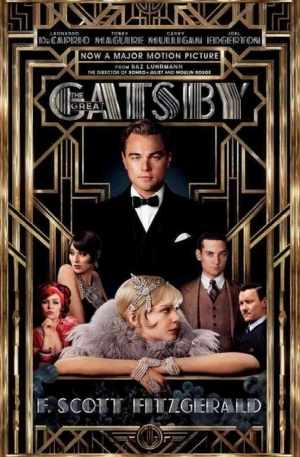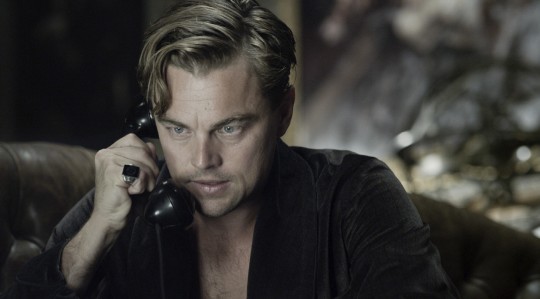The Endurance of Gatsby

Written over 90 years ago, The Great Gatsby is both written and set in a culture very different from our own. In the words of F. Scott Fitzgerald, narrated by Nick Carraway, “The parties were bigger, the pace was faster, the buildings were higher, and the morals looser.” Yet if this seemingly simple book written about the love affairs of young elites appears outdated, why is it still being taught in high schools around the globe and seen as a staple in the literary world? It is because the characters are not so different from the readers and their struggles are something the readers see in themselves, whether conscious or not.
Jay Gatsby and the American Dream
As the namesake for the novel, Jay Gatsby carries a lot of weight. He is at once a mystery and an open book to the few he allows into his inner circle, finding no issue with disclosing certain information such as his goal to win back Daisy, yet tight-lipped when it comes to his past. The most mysterious characteristic of Gatsby, however, is his wealth. Throughout the novel the reader discovers a story of a young man who works hard throughout his youth until it finally pays off in the form of money, landing him a fantastic mansion and unlimited resources. This idea epitomizes the American Dream as well the spirit of the American people, and while the phrase “American Dream” isn’t as prominent as it once was, its meaning has certainly never faded. Many readers may resonate with the ideas that Gatsby’s massive wealth is not without repercussions.
Socializing and Superficiality
While Gatsby’s wealth draws crowds of hundreds to his mansion on a regular basis, the personal connection between Gatsby and his guests is severely lacking. Rumors abound among party-goers as they speculate on who Gatsby is, and Gatsby has no wish to form genuine bonds with anyone other than the people closest to Daisy. Because Gatsby has no true friends until Nick comes along, he remains relatively unknown as a person thus causing a void in his life. He tries to fill this void with more people at his parties, hoping one will lead him to Daisy, and the draining cycle continues. Similarly, social media can provide the same void in people’s lives today. Adding someone to a network is the new definition of a “friend” on social media platforms, rather than adding a human being desiring true friendship and bonding. Social media users today might have a huge network but have very few, real personal connections with the people who make up the network, which can produce the same void Gatsby feels. While methods of communication have changed dramatically over the years, the unfortunate results of artificial connections continue to manifest themselves.

Money as a Link Between Decades
One of the most present themes in the novel is that of money. Financial wealth is the thing that makes or breaks social status, and determines how élite one can become, in addition to how long they can last. Tom and Daisy have “old money,” money that has been in their families for years. Gatsby, however, is “new money,” as his wealth is recently acquired. Though two kinds of wealth are laid out in the novel, it is clear wealth of any sort determines superiority and respect. The jarring depiction of the Valley of Ashes in the novel emphasizes the disparities between the upper and lower classes, as does Tom’s affair with Myrtle. Not only is he cheating on his wife, but he is mixing classes, “lowering” himself and tarnishing his status and reputation. Because Myrtle lives in the Valley of Ashes, any visit to her or through the area becomes associated with the feeling of discomfort simply because it lacks wealth and class.
This distinction between wealth and poverty is somewhat ambiguous today, not seeming as blatant as it was in the 1920’s. While the crossing of socioeconomic classes doesn’t appear as pointed as it was back then, the defining connection between the time period of The Great Gatsby and now is not the perception or place of one’s wealth, but rather the wealth itself. The comforts and benefits of the wealth in Fitzgerald’s novel entices readers, yet they quickly realize the cost associated with it, as the consequences of greed befall the titular character.
The Price of a Dream
What makes Jay “great” is the idea of his put-together life, but in reality his life is falling apart at the seams. His efforts to woo Daisy Buchanan are admirable yet borderline obsessive, so why does one root for his success? Most readers may not want Gatsby to feel the same emptiness they feel, and instead would want him to meet the goals they could never reach themselves. However, Gatsby gives in to self-destructive actions at the end of the novel, revealing that despite his resources and influence, he is ultimately nothing but the shell of a man whose money cannot give him the one thing he desires: love.
While not everyone is seeking a person to fill the void in their life, everyone does have some goal they wish to meet. When people fall short of this, they are left much like Gatsby is: alone (whether they truly are or not), lost, and desperate. Gatsby gives every ounce of himself for Daisy, even willing to take the blame for her accidental crime. In the end we are left with a criminal and her husband going free, and the death of our protagonist, who leaves the world clinging to the hope of one last chance.

The Past as a Mirror of Our Present
By some viewpoints, “history repeats itself,” and to some extent this is true. Moreover, maybe this is why The Great Gatsby continues to connect with readers everywhere. Money is a universal language no matter the decade, as is the desire for love and purpose. Gatsby demonstrates the ideals of the American Dream yet he fails, and the élite Tom and Daisy Buchanan face no consequences for their actions. Nobody likes losing, especially not a loss accompanied by the sting of paying for someone else’s mistake, something that hasn’t faded since the 1920s. The characters of Fitzgerald’s novel deal with many of the same issues people face today despite their different culture, thus making them so easy to identify with. Gatsby’s longing to feel worth instead of emptiness is something many readers also experience, although some are hesitant to admit it. The last line of the novel can at first puzzle the reader, yet it explains so well exactly why we read this novel: “So we beat on, boats against the current, borne back ceaselessly into the past.” We read not simply for pleasure or escape, but to find answers stuck in our past to gain understanding for our present situation.
What do you think? Leave a comment.











About a year ago I re-read The Great Gatsby and apart from a wonderful scene in Gatsby’s mansion, full of light and airiness, I was disappointed. I’m thinking either modern times have changed my taste in literature or ageing has tampered with my sensitivities.
Nick Carraway’s voyeurism is the most interesting and disturbing element of the novel for me. Every time i reread it he seems more sinister.
I wish the films of this book didn’t exist.
Strangely, I had hopes for DiCaprio as Gatsby. I could see him as a character halfway between the naive Jack in Titanic and the bitter, self-deluded Frank Wheeler in Revolutionary Road. A missed opportunity. Sometimes I wish I could pick elements of each of the films and mix them together. I’m sure something passable would emerge.
But the real problem is that the movies are based on a fundamental misunderstanding of the novel. At the risk of being crass, Daisy is shallow, self-centered, immature and in no way worthy of Gatsby’s Romanized soft focus. Gatsby should have paid heed to the human molar cufflinks worn by Meyer Wolfshiem, which are the symbolic opposite of the distant green light. Gatsby’s tragedy is that once he attains his romantic vision, he insists on maintaining it in the face of all the evidence. And it kills him.
Hollywood, on the other hand, likes to pretend it’s a love story….
I agree it’s not a love story and that Daisy is portrayed in a very negative way (although we are not granted access to her consciousness and there are hints of desperation in the events leading up to her marriage to Tom) but I think Gatsby is guilty of viewing her in a very abstract way – he does not see her as an individual. Remember her primary appeal for him is that her voice is ‘full of money’: hardly an admirable vision.
The 1940s version with Alan Ladd is OK.
I enjoyed The Great Gatsby more than I thought I would. Short (which helps!), brilliantly written and full of mystery and intrigue. Some do not like it because they think it’s about shallow people with more wealth than sense and yes, it is difficult to warm to any of the characters, except perhaps the narrator. But in its defence I think one can say that it is a fictional exposé of the mindlessness of privilege and ultimately its destructiveness. The American dream can so easily become the American nightmare.
The Great Gatsby is more relevant today than ever before.
I remembered this book so fondly from my romantic youth and rereading it last year I was appalled at how much I hated it. Not only was it overly flowery language there was a distinct lack of any believable motivation for the characters. Maybe that is the point but I was shocked at how my perspective had changed in 30 years. Some favourites are not meant to be reread…
Twentieth-century classic, worth rereading every few years. Extraordinary achievement.
I studied this for my A-levels and absolutely hated it! Maybe I should ‘re-visit it!
TGG remains one of my all time favourite reads.
I’m not really a fan of The Great Gatsby, but you bring up some great points. My favorites, I think, were the ones about money as a link between decades and the endurance of dreams. No matter what century you’re in, money is king, as classic and contemporary authors show us every day. But fortunately, on the other side of that cynical truth, is that dreams are timeless.
Wonderful novel. I put it second in my all-time list, second only to di Lampedusa’s The Leopard. Third is William Golding’s The Inheritors. Clearly I am interested in the death of a period or a society or a culture! But the ending of The Great Gatsby – So we beat on, boats against the current, borne back ceaselessly into the past – magic!
Great novel, but Tender is the Night is even better, for my money.
Yep, Tender has always been my favourist FSF novel too.
Great Gatsby was great, but he must have been drunk as Bacchus when he wrote Tender is the Night. What a bore!
I agree. And … horror of horrors … I really enjoy the Cowley edition.
What?
Maybe the most overrated book of all time.
1. too long (it should have been a short story instead of a novel, F’s short stories are mostly good)
2. his prose is terrible
3. dated and boring
Numbers 2 and 3 are totally subjective.
Brilliant novel but This Side of Paradise is my favourite by Fitzgerald and as good as any book I’ve read. There’s a beautifully worded and eloquent chapter when the protagonist meets a girl and the novel changes to the script for a play; for me that chapter just accentuates the joy of reading Fitzgerald. However, Gatsby is his most polished novel and obviously brilliant so I can see why it’s taught in schools/appears on these lists. What resonates with me is the utter despair if trying to fit in for Gatsby, a timeless and universal theme if ever there could be one.
A magnificent novel.
Gatsby is a beautiful and dramatic text but it was written by a young man for young readers.
I have to admit I didn’t enjoy Gatsby, but your article, on the other hand, was a very interesting read.
A masterpiece, if only it had been published in 1922, the annus mirabalis of Modernism. The Great Gatsby is definitely a Modernist work.
The Great Gatsby is, and always will be, timeless.
I enjoy the connection between Gatsby’s artificial social life and today’s usage of social media. The term “friend” is extremely convoluted now that people are friends with hundreds of people online. It’s very hard to distinguish the levels of intimacy with someone without understanding who they are in real life. Gatsby can very well be the same way; he puts on a façade for the world to see with his parties and wealth, but secretly he broods over his lost love with Daisy. Perhaps, there’s a bit of Gatsby in all of us.
Whenever I talk about my love for this book, someone tells me that they didn’t like it because they didn’t like any of the characters. And, to me at least, that’s the whole point! It’s been nearly 100 years, but the nature of humans and society has changed very little.
F. Scott Fitzgerald writes about the American Dream; people who live in this country are seeking something, and that is what the novel is about. While the article points out the love affairs of the elite is outdated. It is more than love affairs. Gatsby represents the people of the U.S. and the green light he seeks every night is the something that he is looking for in his life. In the novel, Gatsby seeks Daisy, and that is what the green light represents. The light is at Daisy’s home harbor, which is obvious that he is looking/seeking for Daisy. However, Gatsby represents U.S. citizens in the novel, and when he looks towards the green light, it means that the people of this country are seeking the American Dream. The meaning of the green light is a dream that Gatsby is seeking and that is what U.S. citizens are constantly keep looking for in their lives: the American Dream. Therefore, the novel keeps it relevance today because it is depicting the American Dream, and people keep seeking it for it. So, the article is right to say that the novel is about the American Dream and therefore, it is relevant today because people are still looking for the American Dream.
such a beautiful book
I really like the comparison you made between making superficial social connections through technology and the superficial social connections Gatsby made with his parties!
A good essay. I always thought of this novel as a situation where someone achieved so much and could not take the time to enjoy what they had achieved: Almost a need to Stop-and-Smell-the-Flowers moment is missing from his life.
Great analysis. I loved how you tied the current social media with the void in the character’s life. I liked Nick’s narration of events but always wondered about the reliability of the accounts.